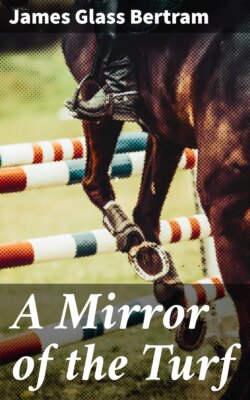Читать книгу A Mirror of the Turf - James Glass Bertram - Страница 11
На сайте Литреса книга снята с продажи.
IV.
ОглавлениеTable of Contents
Epsom must now be noticed, if only to say that racing took place there long before the Derby was thought of, or the Oaks either; but the beginning of sport on the now famous downs cannot be determined by any mention of dates. The place, however, was long, long ago largely frequented as a health resort, becoming at certain seasons the temporary residence of fashionable people who assembled to drink "the waters" and hold social communion. Sport of some kind became a necessity, and King James I., who dwelt in the palace of Nonsuch, at Epsom, passed much of his time on horseback, being fond of hunting and also of "horse matches," which frequently took place, to the great delight of the visitors.
In the reign of Charles I., horse-racing on Banstead Downs would appear to have been pretty well established on an organised plan; references to the sport by Pepys are numerous. Looking over the pages of a "Racing Register" for 1727, the writer found a notice of meetings held on the 2nd, 3rd, and 6th of May, when various "give and take" plates were run for and decided. For the time, the trophies raced for at the meetings in question were of some value, one of them being a gold cup worth forty guineas.
Beginning in the year 1730, racing became annual at Epsom, and was thereafter carried on with great regularity, and continued to grow in importance. In 1736, five days' racing was arranged to take place at intervals. Ten years later, a plate of the value of £50, bestowed by the Prince of Wales, was one of the trophies run for. In 1756 the total sum of £200 was raced for at Epsom; in 1766 the amount had been raised by fifty pounds. In 1782 two meetings were held, in the course of which a good many events fell to be decided.
The celebrity of Epsom as a seat of sport is, of course, due to its being the place where is run England's most celebrated race, "the Derby," some notes on which will be found in this volume. More than a hundred years have elapsed since Diomed carried the colours of his owner to victory in the first race for those now popular stakes, under circumstances of social life which have greatly changed. Not one of the spectators who witnessed Diomed's Derby victory would, in all probability, be endowed with the power of forecasting the growth of the pastime, or the ability to see in his mind's eye the huge proportions it would in time attain, or the money value which would attach to the winning horses, or "the annual expenditure of the tens of thousands of pounds," which would mark the recurrence of the event as it grew in popularity alike with the owners of competing horses and those who came to witness the race.
